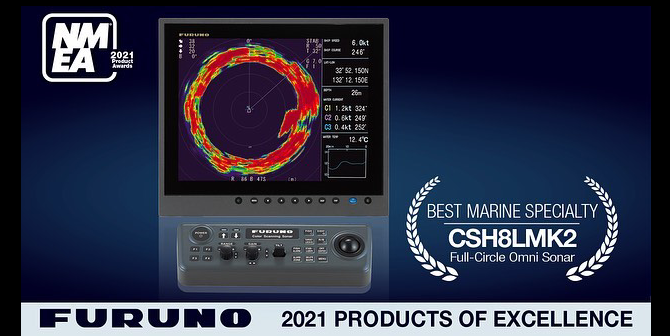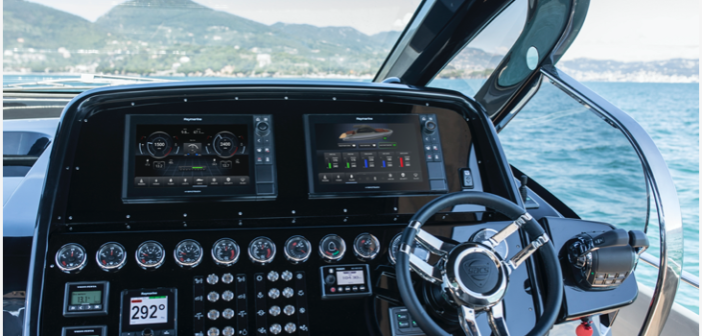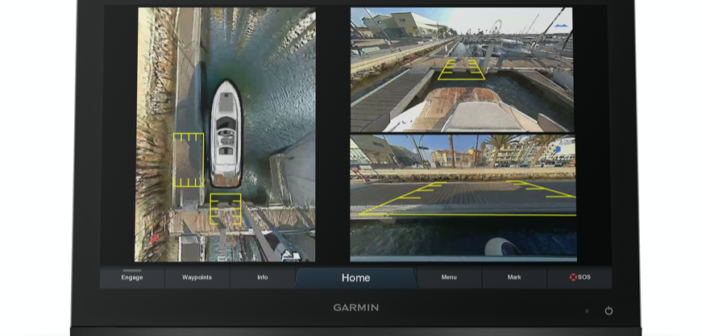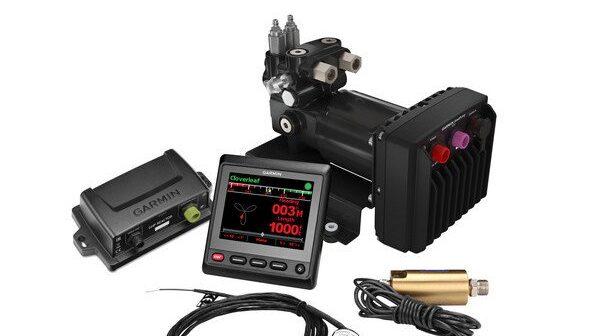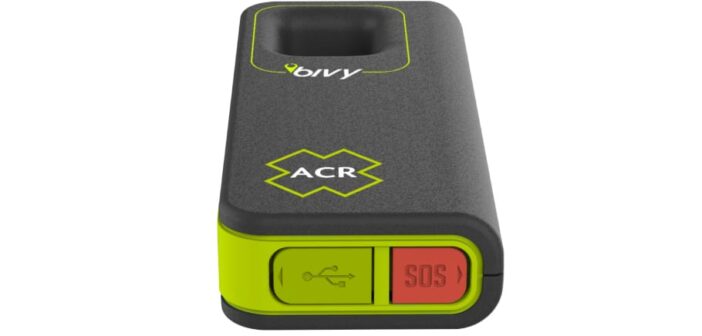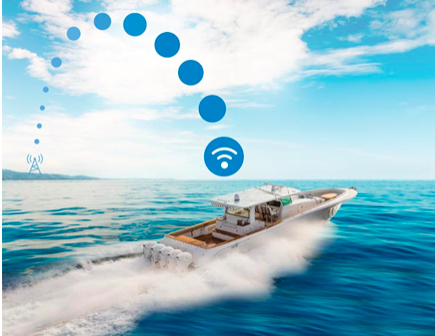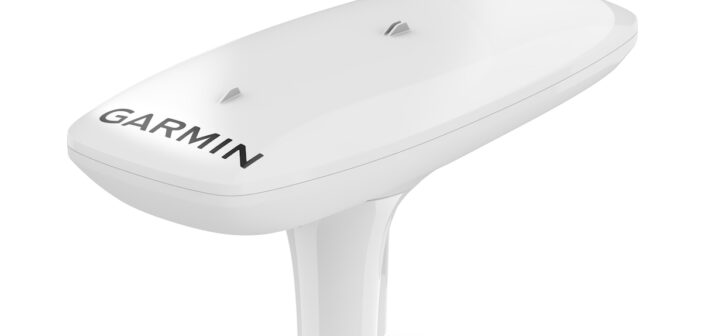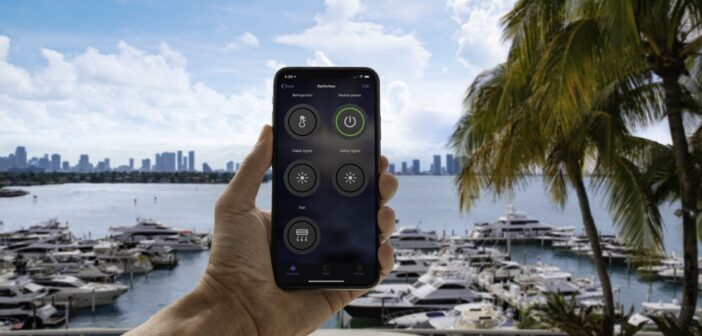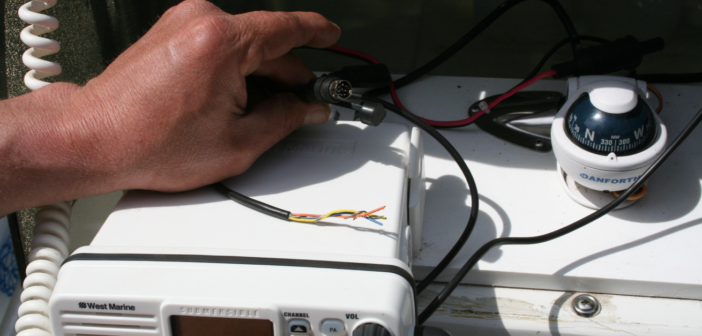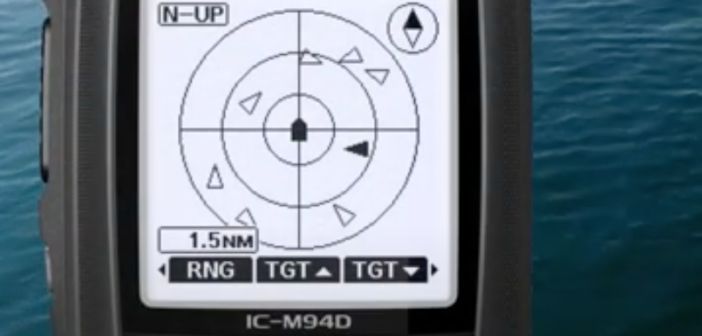Garmin, Furuno and KVH were among the big winners at the annual National Marine Electronics Association awards competition recently at the organization’s meeting in Orlando, Florida. Judges named the Shadow-Caster Light Commander the Best New Product, while Furuno’s NavNet TZT16F won the NMEA’s Technology Award. Furuno won six other awards (Furuno has won 242 of the awards since they started in 1971). For its part, KVH won three, extending its winning streak to 24 straight years. NMEA members, the top marine electronic professionals in the U.S., cast votes on line in 18 categories for the Product of Excellence Awards. These…
Browsing: Electronics
Raymarine just introduced its new YachtSense control system to the U.S. at the IBEX boat builders’ show in Tampa. YachtSense is a digital switching system that connects all the boat’s systems so the captain can be aware of what’s happening in real time. “YachtSense is the new standard in premium digital control solutions for today’s most sophisticated vessels,” said Jamie Dery, Raymarine’s VP of the Americas. Raymarine says the system is unique because of its scalability, its options for various configurations, and its safety features. It uses a modular architecture, starting with a Master Module and a Power Supply Module…
Garmin just announced that it’s launching a new Surround View Camera System to enhance situational awareness and help with docking. The new system uses six cameras to maximize visibility all around the boat. Garmin says that Surround View gives captains a bird’s-eye, 360-degree view around the boat. This visibility lets captains see what’s around their boat’s perimeter in low-speed maneuvers in real time. The technology uses six 1080p cameras located around the boat: a forward-looking camera in the bow, a rear-looking camera aft, and two side-looking cameras on both the port and starboard sides. It displays a full overhead image…
Autopilots are becoming almost essential equipment on new cruising boats, but how to choose the right one? To help you out, the Marine Electronics Journal asked manufacturers to single out their Best & Brightest autopilots for review. These are not necessarily the latest models, or those with the most features, but ones that are the most popular or technologically advanced. Here are the replies from Garmin, Simrad, Raymarine, ComNav, Furuno, Octopus, SI-TEX, and B&G: Garmin’s Reactor 40 hydraulic autopilot (pictured at top) keeps you on course at cruising speeds, minimizes heading error, reduces power consumption and more, so you can…
ACR just launched its new Bivy Stick, the world’s smallest two-way satellite messenger and app. The Bivy Stick works anywhere with a view of the sky, with 100 percent global satellite coverage, and it measures just 4.5 inches by 1.8 inches. It weighs only 3.5 ounces. Built to be used whether you’re out on a day cruise around a lake or on an ocean voyage, the Bivy Stick lets you send messages, track and share your location, access GPS maps, view live weather forecasts, and place an emergency SOS call. The Bivy Stick has a high-power antenna for reliable connections…
Here’s some good news from KVH for better and faster cell service wherever you’re cruising this summer, including up to 20 miles offshore. KVH just introduced its TracPhone LTE-1 Global, a compact new antenna based on LTE advanced cell technology that extends the range for mobile connections in more than 150 countries around the world. The new LTE-1 Global is faster than the previous 4G LTE and includes a high-gain dual antenna array, a modem, GPS, and Wi-Fi router in the dome. This means you can surf the web, hold video conferences, post on social media, enjoy streaming video and…
Garmin just announced that it’s offering a new marine satellite compass to help make navigation safer and more accurate. The new MSC 10 has multi-band GNSS and a fully integrated attitude and reference system to provide accurate heading and position information. Garmin says the MSC 10 provides precise positioning and heading accuracy within 2 degrees. The system is based on information from GPS, so it will not be affected by any magnetic interference. “An advanced navigation tool, the GPS-based MSC 10 won’t be impacted by magnetic interference, so even in challenging situations, you’ll know exactly where you’re headed,” said Dan…
Garmin has launched a new remote OnDeck system that keeps you connected to your boat, no matter where you are. OnDeck lets you track, monitor and control (via up to five switches) what’s happening to your boat. “OnDeck is a comprehensive vessel monitoring and management tool designed to deliver important information about your boat directly to your fingertips, so you’ll always know that it’s safe, secure and ready for your next adventure,” said Dan Bartel, Garmin VP of global consumer sales. Is your bilge pump running, and running and running? You’d certainly want to know. Has your boat moved, and…
Here’s some timely advice from BoatUS about how to get your VHF ready for the season: ANNAPOLIS, Md., March 23, 2021 – In recreational boating, cellphones are just fine for routine communications. So why do you need a VHF radio – either a handheld or fixed mount – on your boat? Because in an emergency it’s the only thing that can directly connect you to the U.S. Coast Guard’s Rescue 21 system, giving you access to high-tech emergency response and Digital Selective Calling (DSC) capabilities that can hasten your rescue. All you have to do now is to ensure VHF…
ICOM just launched its new breakthrough IC-M94D handheld VHF, the first in the world with built-in AIS. Combined with DSC (Distress Signal Calling), AIS (Automatic Identification System) is a boon to boating safety and secure navigation. Until now, AIS was limited to larger VHF units and helm-mounted display screens. With the new Icom, you can have all the safety and communications features (receive only) of AIS in the palm of your hand. You can use it on a smaller boat, a dink or simply as a back-up system on a larger vessel. The M94D is a significant VHF even without…

